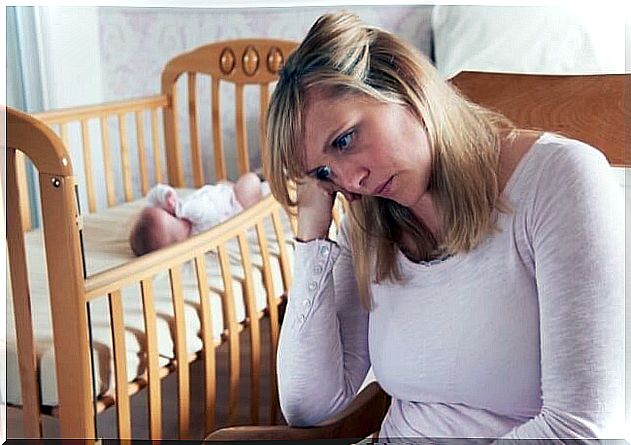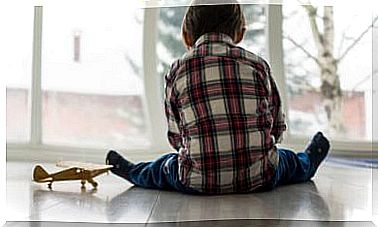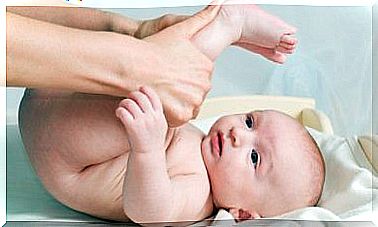How Does Depression Affect The Relationship Between Mother And Child?
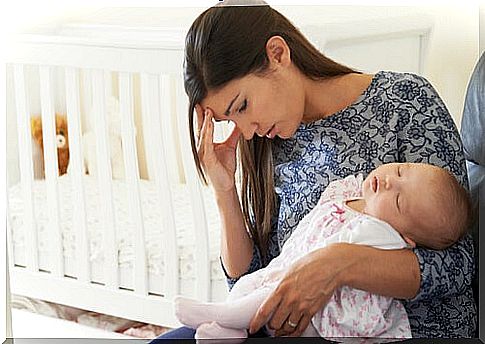
When a woman brings a child into the world, there is a truly magical connection between them. However, this important link can be broken by various factors; For this reason, it is important to know how depression affects the relationship between mother and child, since this is one of the most frequent pathologies in these cases.
Women, after giving birth, experience a carousel of emotions that can take them from the highest point of joy to the deepest sadness on the same day. The causes that can cause these variations are varied; hence, the creature is affected positively or negatively by these changes.
Especially in first-time mothers, it is frequent that in the first days of carrying out their role as parents, fears and frustrations are manifested. These can directly affect the creature, in addition to its family and social environment.
The important thing when detecting a depressive condition is to seek professional help to prevent it from lasting and damaging the baby’s development. Even if it happens when the boy is a little older, the natural behavior of this will be to find a way to please the mother, even though it causes him suffering.
How does depression affect the relationship between mother and child?
The English psychoanalyst Donald Winnicott demonstrated important advances in the treatment of depressive conditions in mothers and their effects on their relationship with their children. Interest in the study of this pathology in this particular setting increased after attending a patient and observing the reasons causing it.
The mother in question communicated concern about her son’s weight loss and thereby hid other situations that afflicted her. The reality in the patient’s home was delicate; she suffered mistreatment from her husband, and the child, being present in this situation, had a lack of appetite.
Despite the boy’s appetite, the psychologist recommended that the woman receive psychological treatment. In this way, he made her understand how depression affects the relationship between mother and child.

Harms of depression in the relationship between mother and child
Changes in behavior
Depression in a mother can cause a decrease in the delivery of affection to her child. The consequences that a mother’s lack of affectionate dedication to her child can cause are varied, especially due to depressive symptoms.
Many cases of violent children derive from the fact that they do not receive enough affection at home and there is complete neglect of their needs. Other types of problems that affect mothers make them remove the affective care of their children from their list of priorities, without considering the terrible consequences of this.
Unsafety
This is one of the most significant effects of how depression affects the relationship between mother and child. The woman, in her role as mother, is in charge of offering security, tranquility and calm to the child. This gives you a comfort zone and reduces your chances of becoming emotionally upset.
When you find yourself in a depressive condition, your priorities change and you leave aside the emotional protection that you must provide to your descendant. This can have consequences for the child throughout his life, such as withdrawing from the social environment, feeling rejected and not having confidence in people.
Alteration of the natural bond between mother and child
When the mother suffers from depression, she neglects the care that the baby should have and the bond between them is weakened. The child, then, will not be able to establish a similar connection with anyone else; only that woman who sheltered him for nine months in the womb has that privilege.
In that case, these requirements must be met by a different person without that magical connection established naturally between mother and child. Your primary needs may be covered, but it will never be the same coming from a person other than your mother.
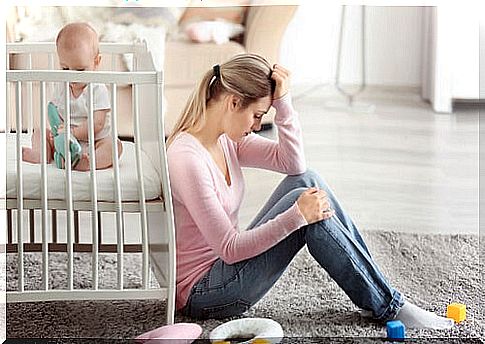
Maternal self-absorption
In this state, the woman is unable to correctly interpret the baby’s signals. Therefore, the sensitivity to their needs decreases considerably. By isolating herself in her own thoughts without paying attention to her surroundings, the mother does not even assimilate how depression affects the relationship between mother and child.
A depressed mother will have an unstable and unhealthy life and, in addition, will transmit its negative consequences to her child. Assistance is required to overcome this problem as soon as possible upon detection; thus, some of its troublesome sequels can be prevented.
